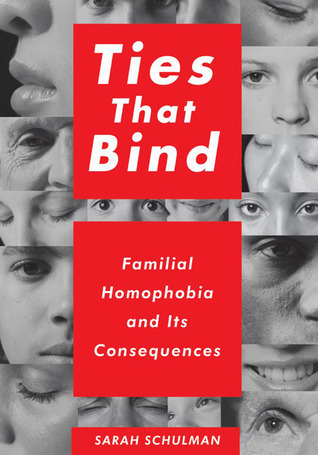What do you think?
Rate this book


171 pages, Hardcover
First published September 15, 2009
"How gays and lesbians are treated IN families is far more influential on the quality of individual lives and the larger social order than how we're treated AS families.
I'm imagining a transformed social value in which homophobia is an action worthy of punishment and exclusion, not homosexuality.
Visibility as a strategy for change is a painful confrontation with the realization that it was an engagement with magical thinking. We believed that straight people hate and hurt us because they don't know us.